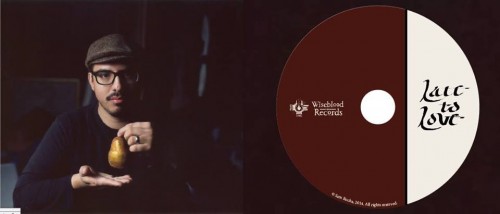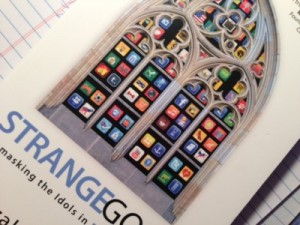One of the great charms of Sam Rocha is that he hasn’t much interest in thinking along easy or comfortable lines. Whether writing on education, or poverty or art, he is always just a little bit jarring. Sometimes you have to read a piece of his twice, or even go back to it a third time, to fully appreciate the depths and nuance of his arguments.
This originality informs his musical ideas, as well. Not too many people, for instance, consider Saint Augustine’s thoughts on love, humility, failure, and mercy and immediately think, “oh, that’s just the stuff to explore along Latin-Caribbean jazz lines, infused with a bit of soul.”
But Sam thinks that way. And as with some of his denser writing, sometimes that requires a bit more attention — one needs to slip into the musical liquidity of Late to Love and let it pool around a bit and then become absorbed. So, you jingle to the beat of “Eggs with Love” for a while, grooving to the Curtis-Mayfieldian glide, and then you suddenly realize, “oh…this is theology…and prayer.”
“Only a rich man can afford cheap tools…if the water ain’t hot, then them dishes ain’t clean”
I listened to this while dusting the bookshelves in my office and thought, well, David danced before the Ark of the Covenant and Miriam danced after crossing the Red Sea, I don’t think God will mind too much as I ponder my own need for repentance while bopping about. My husband, wandering in later, heard “Eulogy for Monica” and wondered where I’d found Sergio Mendes in our music collection. I realized he was right. I was digging on the whole upbeat Brazil ’66 moment.
Because yes, in Sam Rocha’s world, Monica’s eulogy could only be the progression of a joyful procession. Of her death in Ostia, Augustine wrote. “My mother said, ‘Son, as far as I am concerned, nothing in this life now gives me any pleasure. I do not know why I am still here, since I have no further hopes in this world…So what am I doing here?'”
Sam’s “eulogy” is a testament to the woman who was ready to move things along, and joyfully. In my mind, I envision Augustine in the funeral procession around my modern church, reverent and loving, yet too full of the “yes” of her life to remain staid; he breaks out.
I am late in recommending Late to Love because, for one thing, when everyone else was writing so well — and so enthusiastically — about it, I thought one more “this is good; buy this” review would drop soundlessly in the well of praise.
And, too, I have my own speed for these things, much more tortoise than hare. I don’t recommend books unless I have fully read them and believe I have understood them, why would it be different with music?
It took me a little while to understand Late to Love. But that’s okay. It took Augustine a long time to understand something as simple and as complicated as love-in-Christ.
“For Augustine, the human person is not principally a thinking person, an intellectual person, even a rational person. The person is first and foremost a person who was brought into being by love, and so Augustine, the great intellectual, nonetheless was the great defender of the heart,” [Rocha] said.
Indeed. That seems to be the prevailing message so many of us are hearing. If setting it to great music helps it along, all the better.
Besides, Christmas is coming. You have a family member who likes a soul/jazz sound and could stand a bit of exposure to Augustine? Here is what you give them. You have to go here for the physical CD’s, though, so note that!
Related:
Simcha Fisher interviews Sam Rocha about “Late to Love”
Joseph Susanka also interviews him
Soulful Sam Rocha
Concert and Video Q&A
Frank Weathers’ appreciation.

















